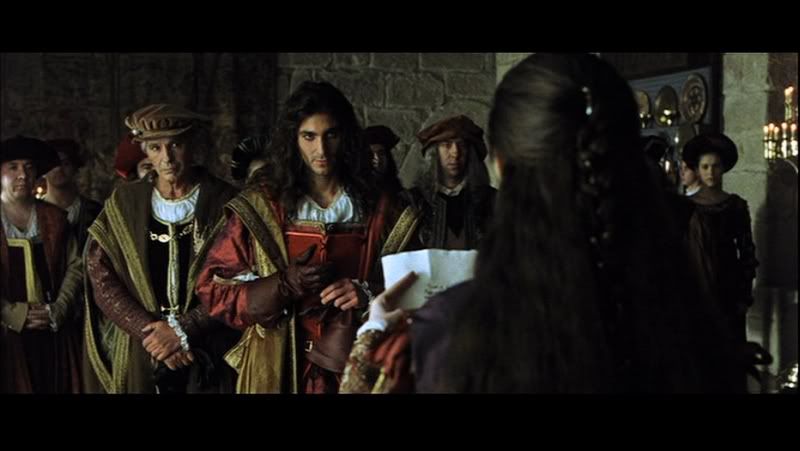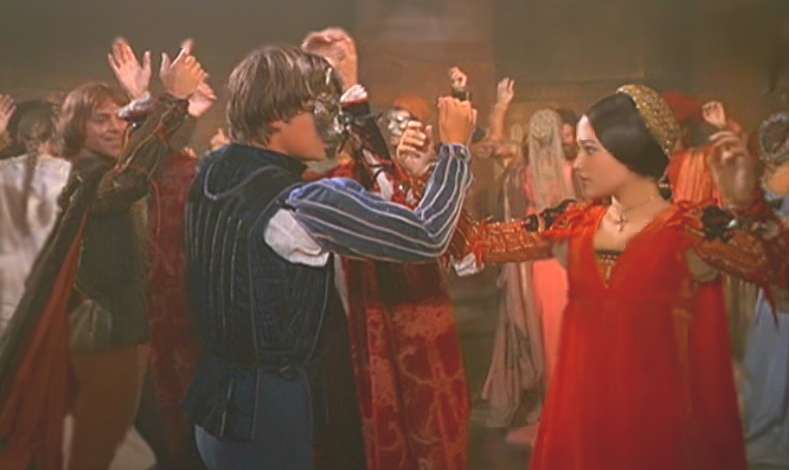Old English (Bahasa Inggris Kuno 500 M-1100M)
Ða wæs on þā tīd Æþelbeohrt cyning hāten on Centrīce and mihtig : hē hæfde rīce oð gemæru Humbre strēame, sē tōseādeþ sūðpoc Angelþēode and norðfolc Ƿɔnne is on ēastwardre Cent micel ēaland Tenet, þæt is siex hund hīda micel æfter Angelcynnes eahte.... On þtyssum ēalande cōm ūp sē Godes þēow Augustinus and his gefēran; wæs hē fēowertiga sum. Nāmon hīe ēac swelce him welahstodas of Franclande mid, swā him Sanctus Gregorius bebēad. And þā sende to Æþbeloeorht ærendwrecan and onbēad þæt hē of Rōme cōme and þæt betste ærende lædde and sē þe him hīersum bēon wolde, būton twēon hē gehēt ēcne gefēan on heofonum and tōweard rīce būton ende mid þone sōþan God and þone lifigendan. Ðā hē þā sē cyning þās word gehīerde, þā hēt hē hīe bidan on þæm ēalande þe hīe ūp cōmon; and him dōn wolde. Swelce ēac ǣr þǣm becōm hlīsa tō him þære crīstenan ǣfæstnesse, forþon hē crīsten wīf hæfde, him gegiefen on Francena cyning cynne, Beorthe wæs hāten. Ƿæt wīf hē onfēng fram hiere ieldrum þǣre ǣrǣdnesse þǣt hēo his lēafness hǣfde þǣt hēo þone þēaw þǣs crīstenan gelēafan.
Bede’s Ecclesiastical History 597M
Middle English (Bahasa Inggris Pertengahan 1100 M-1500 M)
Southern England
Al so þu dost on þire side
Vor wanne snou liþ
An alle wiȝte habbeþ sorȝe
Þu singest from eve fort amorȝe
Ac ich alle blisse mid me bringe
Ech wiȝt i glad for mine þinge
Blisseþ hit wanne ich cume
hiȝteþ aȝen mine kume
Ƿe blostme ginneþ springe and sprede
Boþe ine tro and ek on mede
Þe lilie mid haire fairie wlite
Wolcumeþ me, þat þu hit wite
Bit me mid hire faire blo
Þat ich shulle to hire flo
Ƿe rose also mid hire rude
The Owl and The Nightingale 1216 M
Kentish
Ƿis boc is dan Michellis of Northgate, y-write an englis of his oȝene hand. Þet hatte: Ayenbyte of inwyt. And is of þe boc house of saynt Austine of Canterbury...
Nou ich wille þet ye ywyte hou hit is y-went
Þet þis boc is y-write mid engliss of kent
Þis boc is y-mad vor lewede men
Vor vader, and vor moder, and vor oþer ken,
Ham vor to berȝe vram alle manyere zen
Þet ine hare inwytte ne bleve no voul wen
Huo ase god is his name yzed
Þet þis boc made god him yeve þet bread
Of angles of hevene and þerto his red
Ayenbite of Inwyt 1340 M
London
WHAN that Aprille with his shoures soote
The droghte of Marche hath perced to the roote,
And bathed every veyne in swich licour,
Of which vertu engendred is the flour;
Whan Zephirus eek with his swete breeth
Inspired hath in every holt and heeth
The tendre croppes, and the yonge sonne
Hath in the Ram his halfe cours y-ronne,
And smale fowles maken melodye,
That slepen al the night with open ye,
(So priketh hem nature in hir corages:
Than longen folk to goon on pilgrimages,
And palmers for to seken straunge strondes,
To ferne halwes, couthe in sondry londes;
And specially, from every shires ende
Of Engelond, to Caunterbury they wende,
The holy blisful martir for to seke,
That hem hath holpen, whan that they were seke
The Canterbury Tales 1387
Early Modern English (Bahasa Inggris Modern Awal 1500 M-1800 M)
From fairest creatures we desire increase,
That thereby beauties Rose might neuer die,
But as the riper should by time decease,
His tender heire might beare his memory:
But thou contracted to thine owne bright eyes,
Feed’st thy lights flame with selfe substantiall fewell,
Making a famine where aboundance lies,
Thy selfe thy foe, to thy sweet selfe too cruell:
Thou that art now the worlds fresh ornament,
And only herauld to the gaudy spring,
Within thine owne bud buriest thy content,
And tender chorle makst wast in niggarding:
Pitty the world, or else this glutton be,
To eate the worlds due, by the graue and thee.
Sonnet 1 1594
Modern English (Bahasa Inggris Modern 1800 M-Sekarang)
1 In the beginning God created heaven, and earth.
2 And the earth was void and empty, and darkness was upon the face of the deep; and the spirit of God moved over the waters.
3 And God said: Be light made. And light was made.
4 And God saw the light that it was good; and he divided the light from the darkness.
5 And he called the light Day, and the darkness Night; and there was evening and morning one day.
6 And God said: Let there be a firmament made amidst the waters: and let it divide the waters from the waters.
7 And God made a firmament, and divided the waters that were under the firmament, from those that were above the firmament, and it was so.
8 And God called the firmament, Heaven; and the evening and morning were the second day.
9 God also said: Let the waters that are under the heaven, be gathered together into one place: and let the dry land appear. And it was so done.
10 And God called the dry land, Earth; and the gathering together of the waters, he called Seas. And God saw that it was good.
Douay-Rheims Bible 1899














0 comments:
Post a Comment